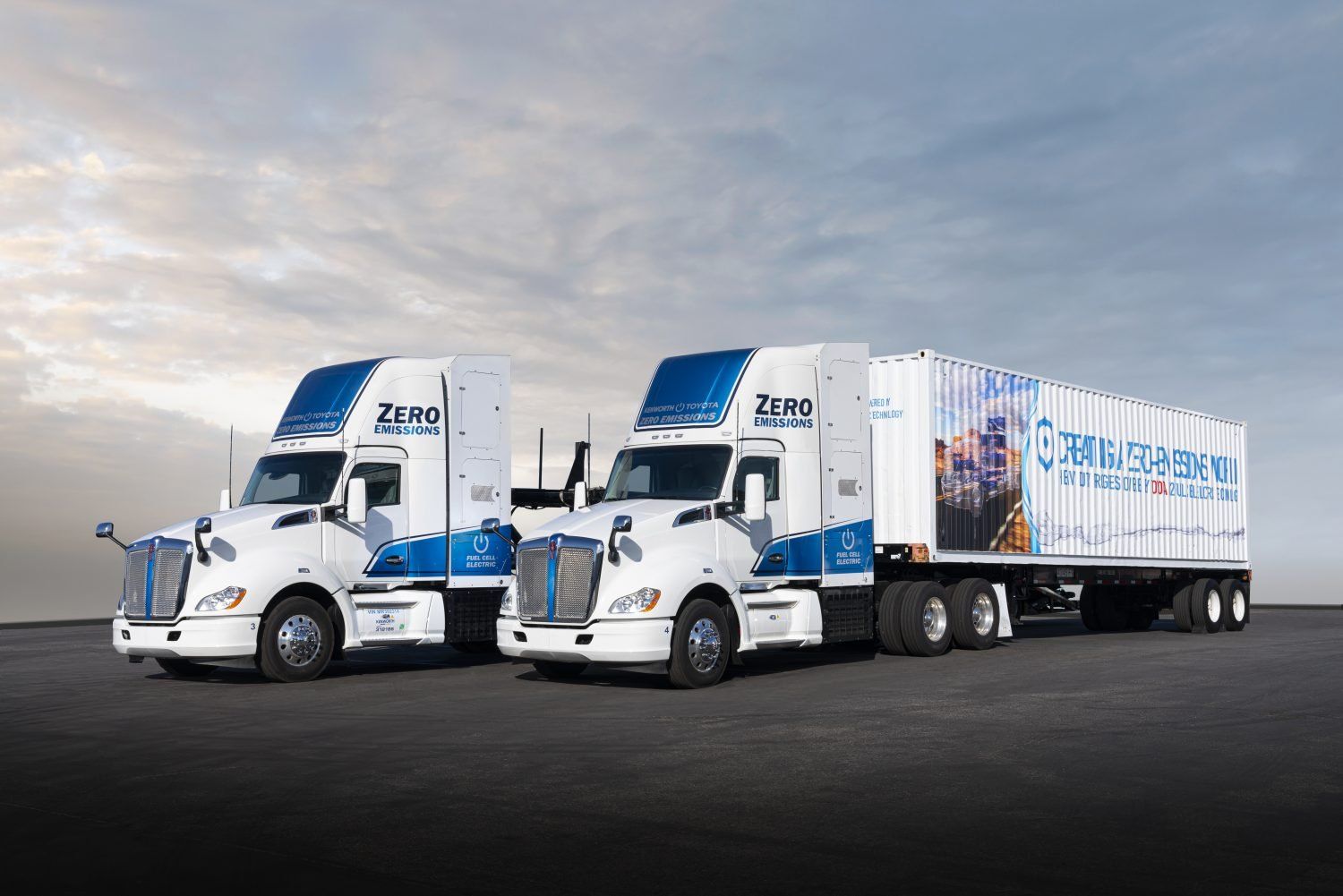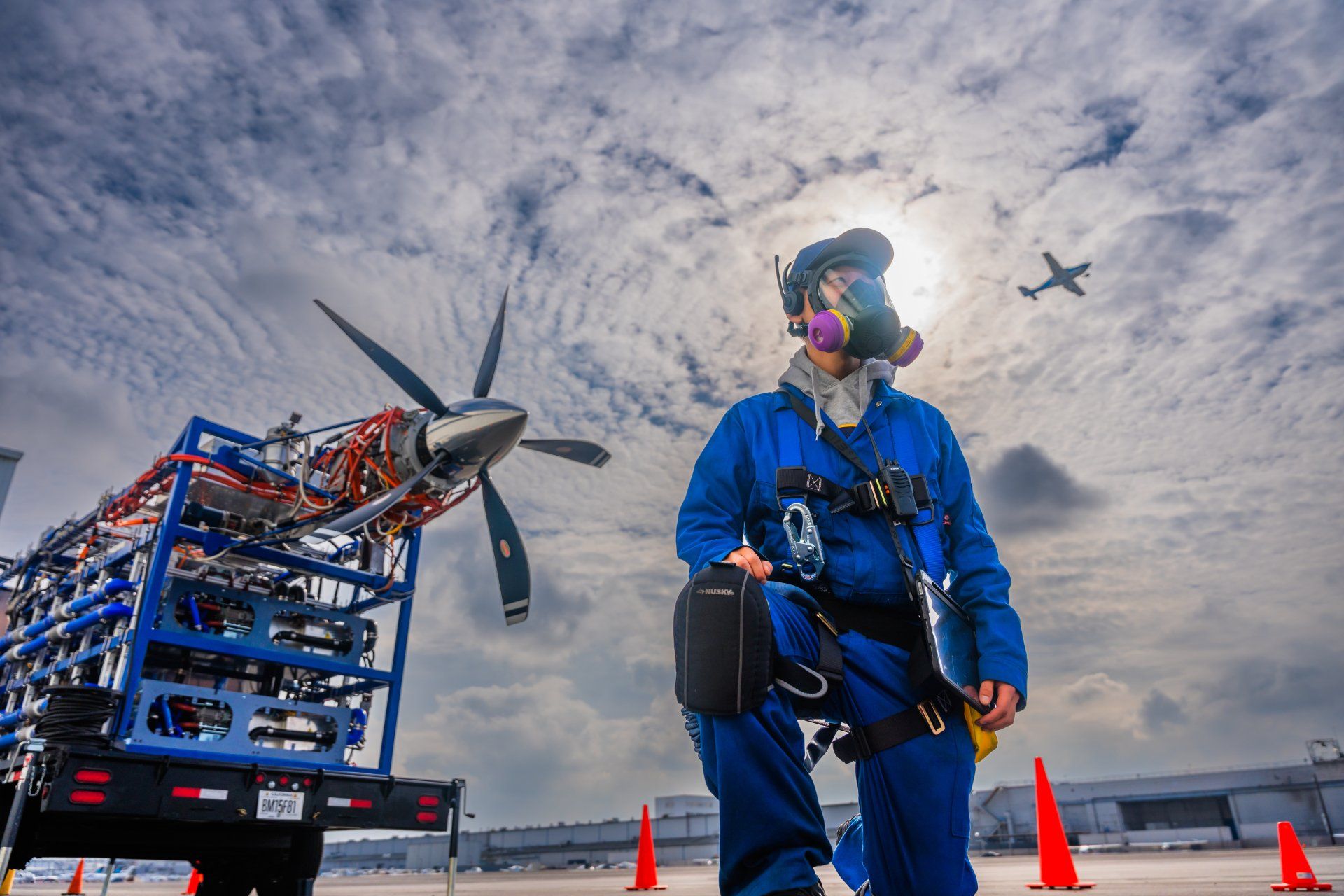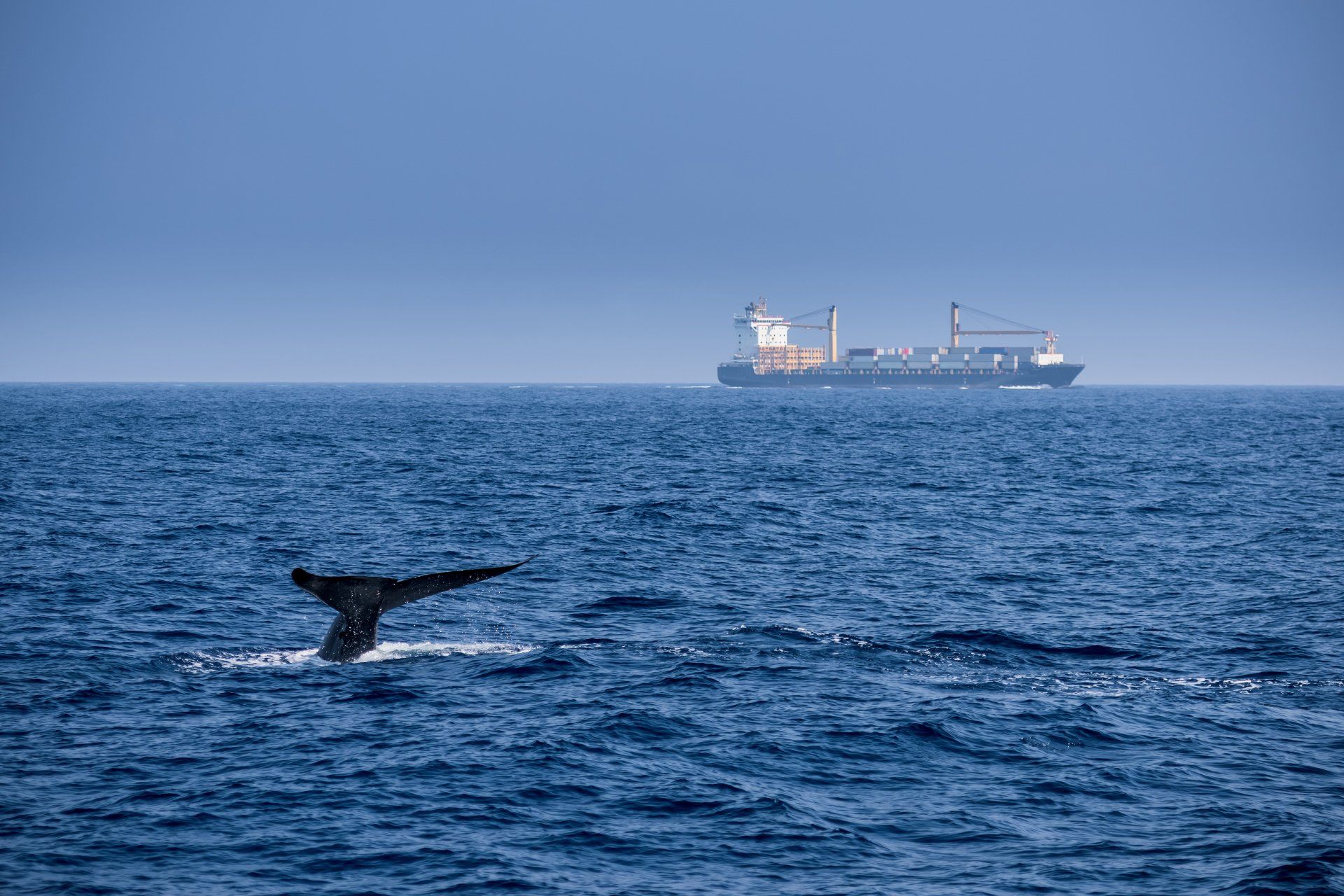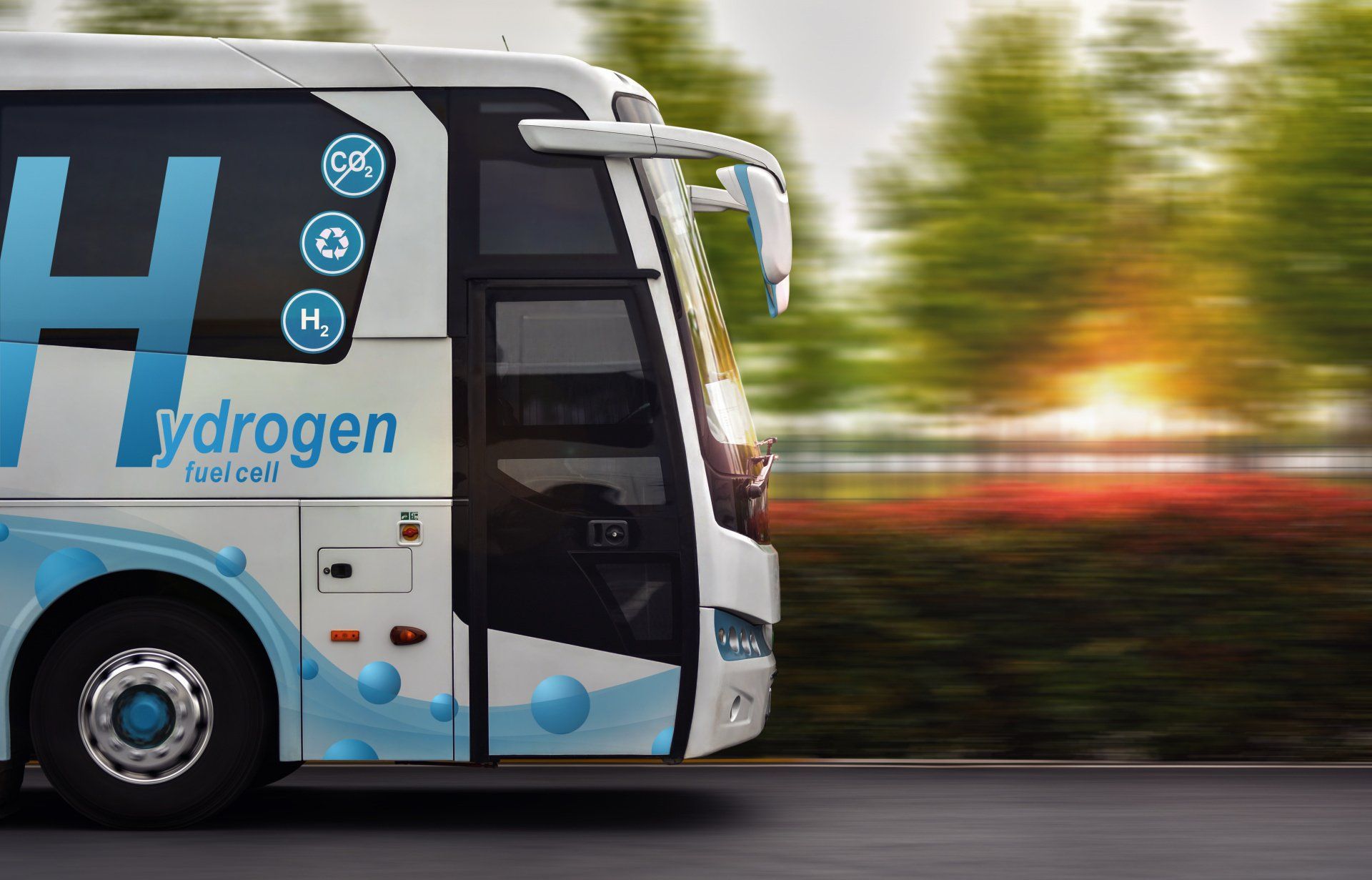REDUCE TRANSPORTATION EMISSIONS
Renewable H2 Goes The Distance
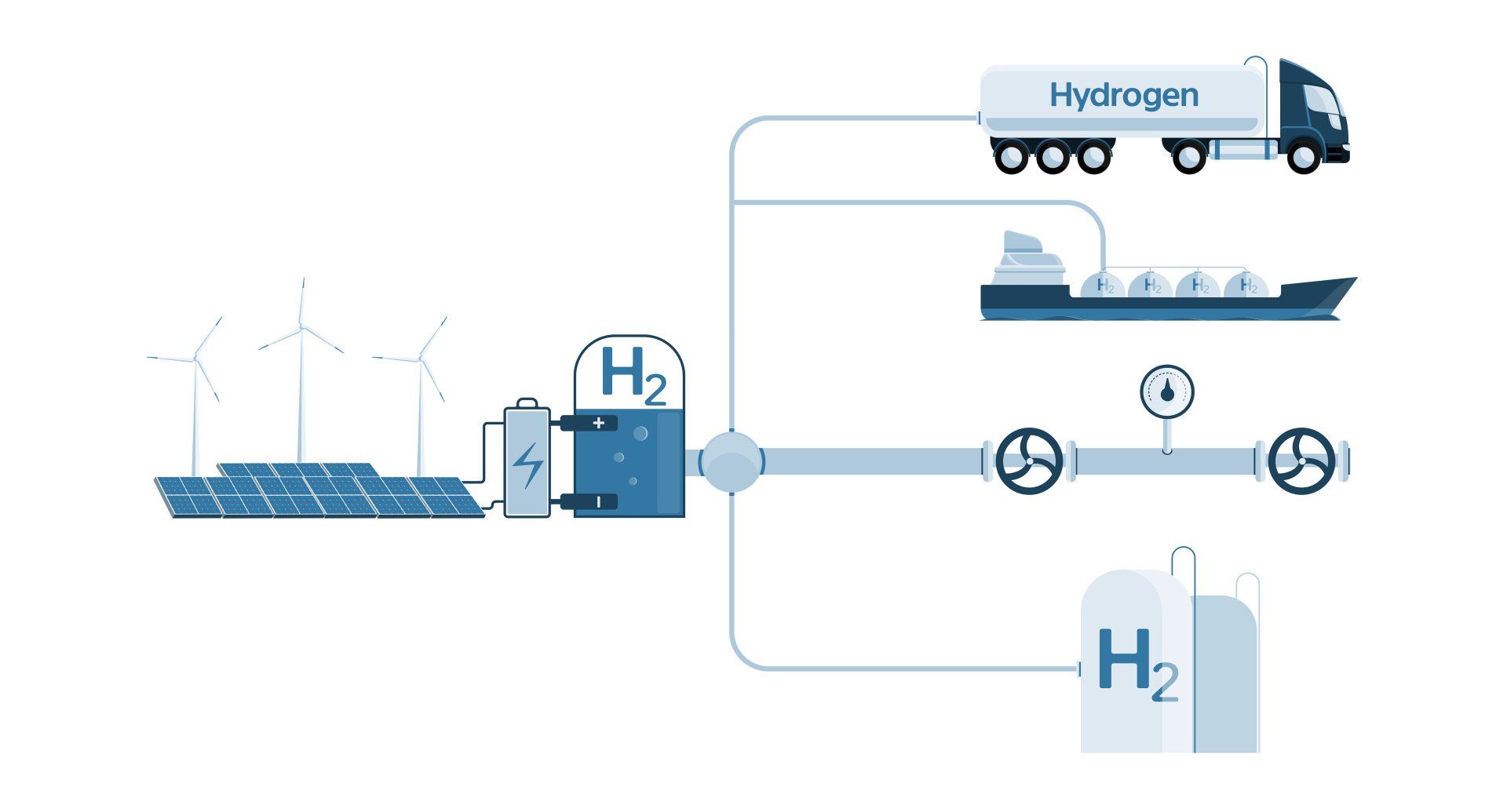
Green Hydrogen Is The Fuel Of The Future For Heavy Duty Transport
Whether it’s a package delivery to your home or a trip to your local grocery store, it was moved at some point by either a diesel truck that belches harmful substances into the air, cargo ship using highly polluting bunker fuel, or airplane that produces 663 pounds of carbon dioxide emissions from jet fuel on a single trip from Seattle to Miami.
Green H2 is the sensible and affordable way to keep commerce flowing on the roads, on the seas, and in the air while eliminating the exhaust that’s contributing to climate change.
Reduce Air Pollution From Roads
Communities living near busy roadways suffer disproportionately from asthma and lung cancers that are the direct result from breathing in diesel exhaust.
Converting those diesel trucks to green hydrogen is the sensible and affordable way to reduce our carbon footprints connected to the everyday items we buy because:
- Prices for green hydrogen are forecast to drop below diesel fuel prices as the industry scales up. (McKinsey & Co.)
- Hydrogen fuel cell trucks can be driven further distances on a tank of diesel equivalent
- H2 fueling stations can fuel a long-haul vehicle in the same amount of time it takes to fill a gasoline tank.
Washington is already ahead of the curve as Bellevue-based Paccar is delivering hydrogen trucks to companies wanting to reduce their carbon footprint.
"Companies in Everett & Moses Lake are already working to make hydrogen air travel a reality."
Fly Friendlier Skies
Hydrogen is the only alternative fuel that cuts all CO2 emissions from flying. Furthermore, H2 can reduce a significant share of all non-CO2 emissions like like NOx and SOx, leading to an overall reduction of 50-90% in climate impact which exceeds the reduction potential
of all other alternative fuels. (Hydrogen Insights Report, 2021)
Fly Friendlier Skies
Hydrogen is the only alternative fuel that cuts all CO2 emissions from flying. Furthermore, H2 can reduce a significant share of all non-CO2 emissions like like NOx and SOx, leading to an overall reduction of 50-90% in climate impact which exceeds the reduction potential
of all other alternative fuels. (Hydrogen Insights Report, 2021)
"Companies in Everett & Moses Lake are already working to make hydrogen air travel a reality."
H2 Makes The Oceans Blue
A single large container ship can emit cancer and asthma-causing pollutants equivalent to that of 50 million cars. The low-grade bunker fuel used today contains up to 2,000 times the amount of sulfur compared to diesel fuel in automobiles.
But containerships are among the most challenging sectors to decarbonize, and hydrogen in combination with biofuels offers the only scalable pathway to fully decarbonize these. (McKinsey & Co.)
In addition, hydrogen can serve as an emissions free replacement for Washington’s ferry system because they don’t require require expensive large batteries and associated charging and infrastructure required by electric ferries.
Why Green Hydrogen Instead Of Electrification?
"The hydrogen industry can help enable the energy transition to a net-zero world. (Path to Hydrogen Competitiveness Report)"
Green hydrogen is compatible with vehicle electrification and both are needed to reduce Washington’s largest source of climate pollution: transportation. In fact, hydrogen cars run by using a hydrogen fuel cell to power an electric battery.
But for long distances and heavy loads, green hydrogen is the better choice to achieve a net-zero emissions goal.
- Hydrogen can be stored for weeks or months, making it ideal for global shipping
- Hydrogen is lightweight and takes up far less space than batteries on trucks or planes
- Hydrogen fueling is much faster, which is essential for long haul trucking and meeting scheduled flight times
Why Green Hydrogen Instead Of Electrification?
"The hydrogen industry can help enable the energy transition to a net-zero world. (Path to Hydrogen Competitiveness Report)"
Green hydrogen is compatible with vehicle electrification and both are needed to reduce Washington’s largest source of climate pollution: transportation. In fact, hydrogen cars run by using a hydrogen fuel cell to power an electric battery.
But for long distances and heavy loads, green hydrogen is the better choice to achieve a net-zero emissions goal.
- Hydrogen can be stored for weeks or months, making it ideal for global shipping
- Hydrogen is lightweight and takes up far less space than batteries on trucks or planes
- Hydrogen fueling is much faster, which is essential for long haul trucking and meeting scheduled flight times
Get Involved
Green hydrogen legislation is being considered by the Washington State Legislature in Olympia. Sign up if you’d like more information, want updates on progress, or want to learn how to make your voice heard on these critical issues for our health and our economy. Please share your name and how you’d like us to contact you, either by text or e-mail.
Footer
Thank you for your interest in green hydrogen.
Please try again later.
All Rights Reserved | Privacy

